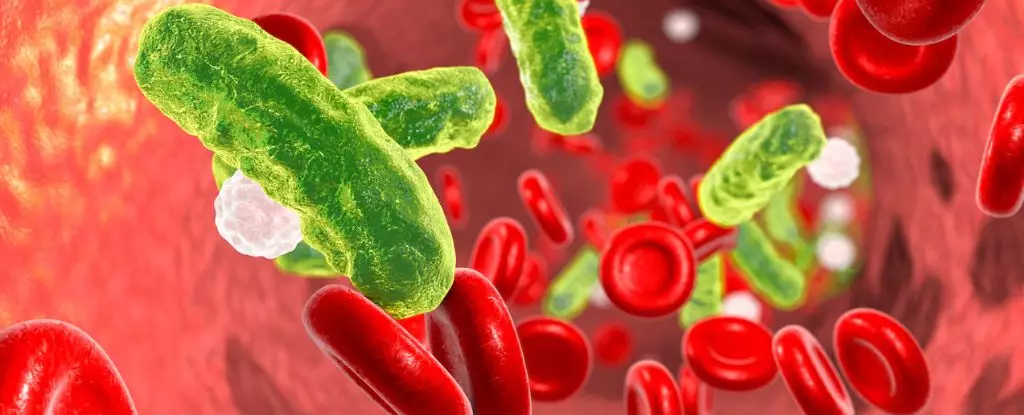In the battle against drug-resistant bacterial infections, a groundbreaking discovery has emerged from the labs at Uppsala University in Sweden. Scientists have unveiled a new class of antibiotics that specifically target gram-negative bacteria, such as Escherichia coli and Klebsiella pneumoniae. These types of bacteria are notorious for their double membrane structure, which poses a significant challenge for traditional antibiotics to penetrate and effectively combat the infections caused by these pathogens.
Unlike conventional approaches that focus on disrupting lipid membranes, the researchers in Sweden took a different avenue by targeting an enzyme called LpxH. This enzyme plays a critical role in synthesizing lipopolysaccharides, essential components of the outer membrane of gram-negative bacteria. By inhibiting LpxH, the new antibiotic compounds showed remarkable efficacy in combating drug-resistant strains of E. coli and K. pneumoniae in mice within just four hours of treatment.
The initial compound, JEDI-1444, proved to be a promising candidate in inhibiting the growth of gram-negative bacteria. However, it faced challenges in solubility and stability in blood. Through strategic modifications, the researchers developed two improved variants, EBL-3599 and EBL-3647, which exhibited potent antimicrobial activity against a wide range of drug-resistant E. coli and K. pneumoniae isolates, regardless of their resistance genotypes.
The rise of antibiotic-resistant infections poses a grave threat to global public health, with drug-resistant bacteria claiming countless lives each year. With the limited arsenal of antibiotics available on the market today, the urgent need for innovative treatments is more pressing than ever. Antibiotics that were discovered decades ago are becoming ineffective against evolving strains of bacteria, emphasizing the crucial importance of developing new classes of antibiotics to address the growing crisis.
In light of the alarming statistics projecting a surge in deaths from antibiotic-resistant infections by 2050, the imperative to accelerate research and development of novel antibiotics cannot be overstated. The World Health Organization has identified drug-resistant gram-negative bacteria, including E. coli and K. pneumoniae, as top priorities for urgent intervention. The recent breakthrough in targeting the LpxH enzyme marks a significant step forward in the fight against antibiotic resistance, offering hope for a brighter future in the battle against drug-resistant infections.
The discovery of this new class of antibiotics at Uppsala University represents a significant milestone in the field of antimicrobial research. By pinpointing the Achilles’ heel of gram-negative bacteria, scientists are paving the way for more effective treatments to combat drug-resistant infections and save lives. This breakthrough underscores the importance of continuous innovation and collaboration in the quest to outsmart evolving pathogens and safeguard the future of global health.


Leave a Reply